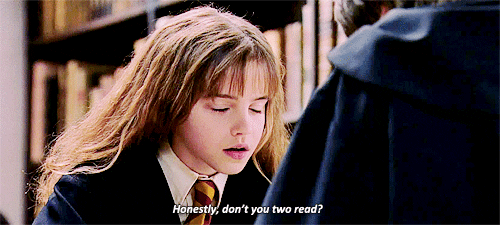Colombian-Puerto Rican producer and media analyst Cristina Andrade just finished work on her first feature film Bendita Rebeldia. She studied Law in her native Bogota, Colombia, and holds a Masters in Communication Management from USC, as well as a Certificate in the Business of Entertainment from the School of Cinematic Arts. Prior to producing Bendita Rebeldia, she worked as Director of International Productions at Laberinto Producciones. She works in media and entertainment analytics in Los Angeles, where she lives with her husband and their cat, Maui.
I had the opportunity to interview her about her experience.
Interview edited for brevity and clarity.

So what made you decide to go into film?
I’ve always loved watching movies and TV, maybe too much. And when I graduated high school, I chose to study law. Okay, so context: I am Colombian, and in Colombia, law school is a five year undergrad. When I began to analyze my reasons for becoming a lawyer, they primarily reflected what I had seen of lawyers in movies. I think that’s what happens to a lot of people. At that time, I saw a documentary called Miss Representation.
What the documentary showed is that in the past couple of decades, the roles that women have had in film and TV have been very limited. It’s usually slut versus saint. After seeing the documentary, I realized that a lot of things that I believed about myself, I didn’t learn from my parents or school, I learned it from TV and movies.
Can you give an example?
I always thought you had to choose between being smart and being pretty. I honestly thought that. I purposely looked bad. I purposely did not try to look my best because I wanted to be a smart girl. My drive to become a lawyer was not driven too much by the law itself, but by the idea I had of what lawyers did from movies and TV. And you actually see a lot of people choose their careers because of a movie they saw. Colombia specifically, is more misogynistic than the US in a lot of ways.
When I saw the documentary, I suddenly realized a lot of girls in Colombia – their dream is to become models, rather than doctors, or scientists. That’s always really disturbed me, because that’s a dream that completely depends on your body and not necessarily on your actions or your mind. So, after seeing the documentary. I decided I wanted to contribute to society by making movies or TV that showed a different way of being a woman. Coincidentally, everyone started thinking about the same thing around the same time, so that started happening naturally.

I always thought that my first film would be a horror movie. I started liking film as an art through horror. My mom bought the box set of all of Hitchcock’s movies and I would watch them with her. When you watch black and white film is when you start noticing the art behind it.
I always admired of horror how those movies can evoke such strong emotions artificially. You’re staring at a screen, feeling stronger emotions than most of us feel in real life. Thank God, thank the universe. I also think that when horror wants to highlight a certain topic, like Get Out, racism, the point comes across sometimes much louder than if it’s another genre. I want my next project to be horror.

Tell me more about working with a female lead production team. You mentioned that most of the department heads were women?
It’s been a great process. We’re also friends so it’s also been good. There’s been multiple moments in these last three years, where each one of us has burned out. And we’ve been able to talk about it to the others. Three of us were the core and would be like ‘Hey, I can’t’. And then the other two would be very understanding, ‘No worries, take this week, and then come back,’ so that really helped. I don’t know that the dynamic would have been the same if there was a man. Maybe!
What has been interesting is that throughout the process, people saw us as girls and not as women, and the word girls has been used a lot by executives and subordinates. I know that does not come from a bad place.
That was part of the feminist movement in the US, the whole point of getting women to be called women and not girls. My mom is very feminist so she was the one who told me, it’s important when you become a woman to be called a woman. In Colombia, that conversation has not even started. And I don’t think it’s gonna start. I think most women don’t notice. Every single time I hear girls, I cringe a little.

What’s something that you learned while working on this film that you would want other aspiring filmmakers to know? Or that you would have wanted yourself to know at the beginning?
Something I would have not liked to know is how hard it was gonna be. Really! If I went back three years, and knew everything that has to happen, making a movie is the least organic process ever. You need a lot of coincidences to get an indie film done. I still sometimes cannot believe we did, because in these three years there’s been multiple moments where there’s been a real possibility of not finishing it. Laura is especially very hopeful, very positive, and that was amazing. So, I think a lot of times she was the person who kept us going. I think it’s very important that you do this with a person who compliments your skills.
Also, something that worked really well was having a team of three. It was Laura, me and Sindy, the other co-producer. Having a team of three really helped with decision making. Each of us complemented the other personality-wise, and skill-wise. I myself, I’m a worrier, and a lot of lawyers, we tend to pinpoint what will be the worst possible outcome of any situation. I always thought of the worst thing. We’ll get sued if we don’t get this! I was thinking like that. If Laura had also been like that, we would have not made it a month. It really helped that she’s a very positive person. So I would recommend to not only think of the other teammates palette, but also how their personalities complement each other.
One of the big things I learned is how to work with a friend. You see it happen to other people but, your friendship changes forever. There’s obviously gonna be hard moments, you can start off as friends, and then end as enemies. It’s so common for producers and directors to end the movie hating each other. And I think it’s because maybe their personalities [were too similar]. Maybe both of them are perfectionists or both of them are too positive. It’s just really hard to know, and you really learn the other person’s personality once you’re in it. And you have money. Money brings out the best and the worst in people.
Yeah, making movies is strange because it’s really common in entertainment to hear people say ‘we shouldn’t stress. It’s not like we are surgeons, we’re not saving anyone’s life.’ But the stakes are really high because movies are very expensive, and the possibility of breaking even is so low, even for Hollywood films. It’s the least logical business there is.

Okay, so the film opened in March. How’s it going? What’s going next? You went to South Africa for a festival.
Yeah, so the film lasted a full week, which is very good for an independent movie. We were actually only a week because I think our distributor needed more theaters for the Oscar nominees. So we did very well in the three big cities in Colombia, we did not do well at all with the smaller ones. That was part of the risk, but a lot of the marketing was done around ‘first female lead comedy’. Looking back, that’s maybe not a good selling point in a lot of parts of Colombia, because it is so conservative.
Some comments were super weird once people saw the headline ‘female lead’. There was one woman who said “Just because it was made by women doesn’t mean it’s better.” And I really wanted to answer it. But other people just say, “hey, they never said that, it’s just a statement of fact.” She’s like, “but why is that important?” Oh, but that happens everywhere in the world with feminism. Feminism is, it’s still unfortunately a dirty word to some people.
What was nice to hear was that there were a lot of showings where people clapped at the end. That’s really sweet. And we also had very good reviews. Ideally we would like to end up on a streaming platform, so fingers crossed.




